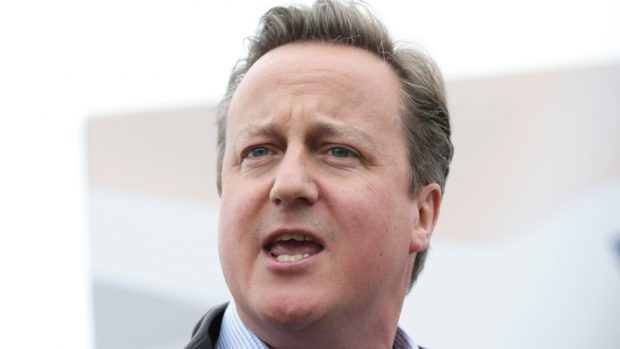David Cameron insisted last night he has no regrets about not giving 16 and 17-year-olds the right to vote in the European Union referendum.
The prime minister also said he is not emotionally attached to the EU and its institutions.
And – asked why he would not debate ex-London mayor Boris Johnson – he stressed he did not want the campaign to become the Dave versus Boris show.
The Tory leader was the last of four politicians, including Nicola Sturgeon, to take questions at a town hall-style event.
He came under fire from one audience member who called him “dodgy Dave” and accused him of messing up – albeit in stronger terms – everything in the country.
The PM said he was glad they were at least on the same side when it came to supporting the UK’s continued membership of the EU.
He was also criticised by an Indian national, who argued she consistently had to prove her “worthiness”.
She suggested a points-based system for people coming to Britain from within the EU to make things fairer.
In another question, Mr Cameron was asked if he regretted not giving 16 and 17-year-olds the vote, given many are pro-Remain.
He said he did not, that parliament had decided and “that’s what the rule is”.
Asked why there was so little affection for the EU in the UK, he described Britain as different, conceding for some Europeans it was more emotional.
He said he did not share in that, but added: “The EU has helped to keep the peace in Europe.
“Countries that used to fight now talk and debate and reach agreement in that way. We should have an attachment (to that).”
Ms Sturgeon who appeared before the PM denied the Scottish Parliament would automatically get more powers in the event of a Leave vote.
The first minister also urged voters not to make their decision based on a “grievance” or their “thoughts about the SNP”.
And she said it was possible Scotland could keep England inside the EU against its will.
Ukip Leader Nigel Farage insisted there was a simple choice: “Do we want to run our affairs or not?”
Asked about the plan in the event of a Brexit, he said the UK would go to Brussels to negotiate a “sensible, amicable divorce”.
